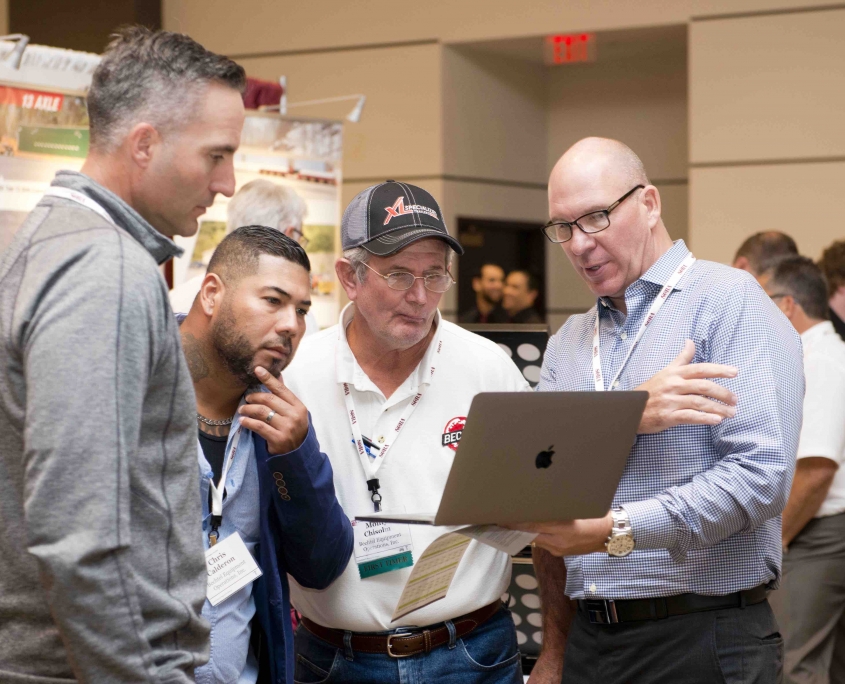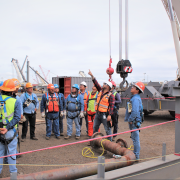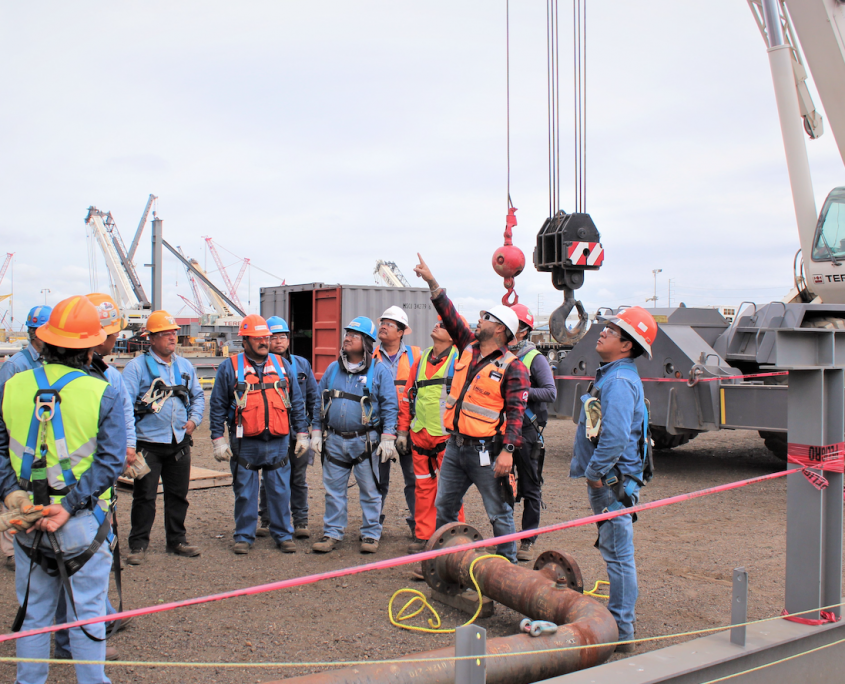Q&A with Chris “Caveman” Calderone of Bechtel Equipment Operations
Known by many in the industry simply as Caveman, Chris Calderone has spent more than half his 23-year career in crane and rigging with Bechtel Equipment Operations (BEO). A crane operator by trade, he is currently a Crane & Rigging Superintendent for BEO. Calderone oversees all lifting and rigging operations and training worldwide for all four of Bechtel’s global business units. A big part of his job is planning lifts, plotting the equipment needs for procurement, and training and qualifying crane operators and riggers.
Often recognized by Bechtel team members for his training expertise, he is a stand-out role model for field personnel. Said one team member: “Your positive attitude towards change and new processes…influences the behavior of those around you in a positive way.”
What is it about traveling around the world to places like Kosovo, Peru, Chile, Saudi Arabia, and Mexico that makes this a favorite part of your job?
My job requires a lot of travel. I’ve visited 24 countries for work and pleasure and speak four and a half languages—English, Italian, Spanish, French, and about 30% Arabic. I get to interact with a lot of very interesting people, share cultures, and discover new foods. My personal favorite is Peru. I love the energy of the country.
I’m responsible for overseeing field management on these projects and for hiring many workers from the local labor force. I find that people outside the U.S. are very willing to learn. They are open to receiving direction on how to do their work safely. Nobody likes to be told what to do, but the engineers, crane operators and riggers in other countries are very receptive to coaching and teaching.
One of the challenges all over the world is that the industry isn’t what it used to be. There are fewer people with the right skills. In the U.S. and around the world, the contractor is responsible to make sure that the crane operators or any other operators are qualified to operate the equipment. Even operators with an accredited certification—I still have to verify their competency. Sometimes they don’t understand that and take offense.
Where are you working now and can you tell us a little about the project?
I’m currently at a petrochemical complex in Monaca, Penn., where we are building a brand-new cracker unit. At one point, there were 125 cranes working on this project at the same time, which requires precise planning and coordination.
When you come across tools, accessories, or equipment that you like to use, what role do you have in influencing the purchase of those for jobs?
A key part of my role is to provide consulting and advise to the procurement department on specific tools, rigging, and equipment that are needed to contribute to the success of projects. I attend shows and conferences to see what’s new in the market.

Chris Calderone (second from left) and Monty Chisolm of Bechtel Equipment Operations at an SC&RA Crane and Rigging Workshop with DICA’s Kerry Koberg (far left) and Kris Koberg (far right).
The Operations team does a lot of research and testing of new equipment and products so that we can make the business case to procurement. For example, we discovered a new type of synthetic chain that could be used for rigging, as a stationary attachment point, and for load securement. Once we acquire the products or equipment, the Operations team also provides training to the field on inspection, maintenance and use of those tools or equipment.
What lessons did you learn as a crane operator that have impacted the way you lead crane and rigging operations as a superintendent?
I am a crane operator by trade with a lot of practical experience—23 years in the industry. That’s important on these mega projects because I’m not easily fooled by situations in the field concerning rigging and lifting operations of all sorts. That experience makes me a subject matter expert. My motto is lift it right or don’t lift it at all. Rig it right or don’t rig it all.
I have several engineers in my team. Some of them don’t have any field experience but together we make a great team. Unfortunately, that’s a trend. It’s important to have both the knowledge and the field experience.
Tell me the story behind your nickname Caveman.
I play the drums and sing. When I was about 10 years old, my mom insisted that I play the drums at church, which I did not want to do. After she made me go, I came home and was mad. So, I went to my room and started pounding on the drums like crazy. She finally had enough. She called me a caveman and told me to be quiet. My brother thought it was funny and started calling me Caveman.
To this day, there are a lot of people in the industry that only know me by Caveman. They don’t know my real name. So, I guess the nickname stuck.




